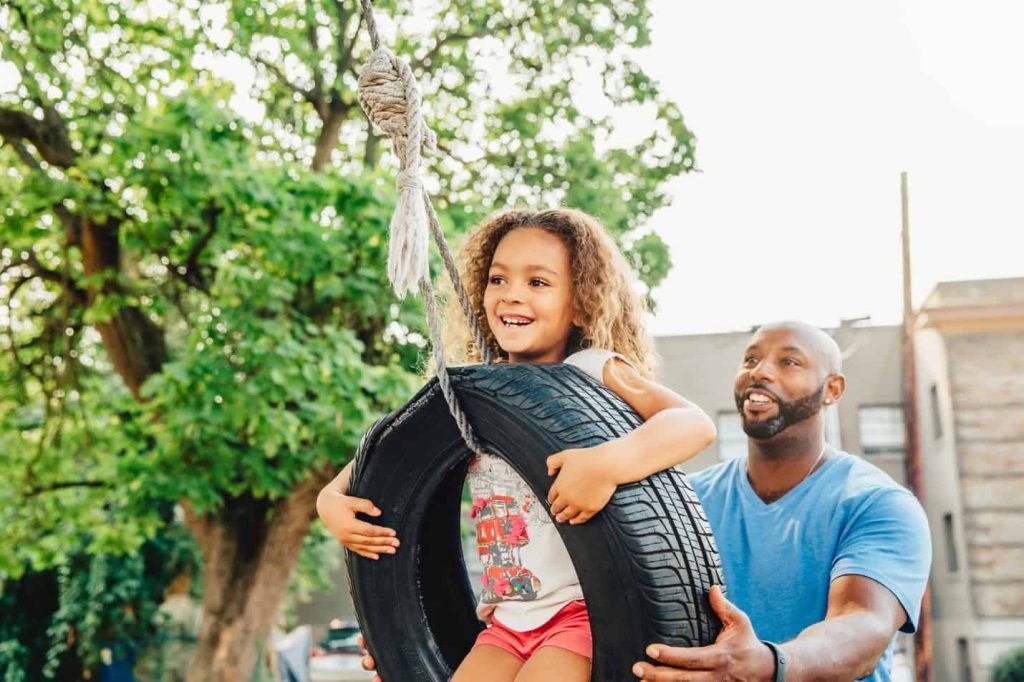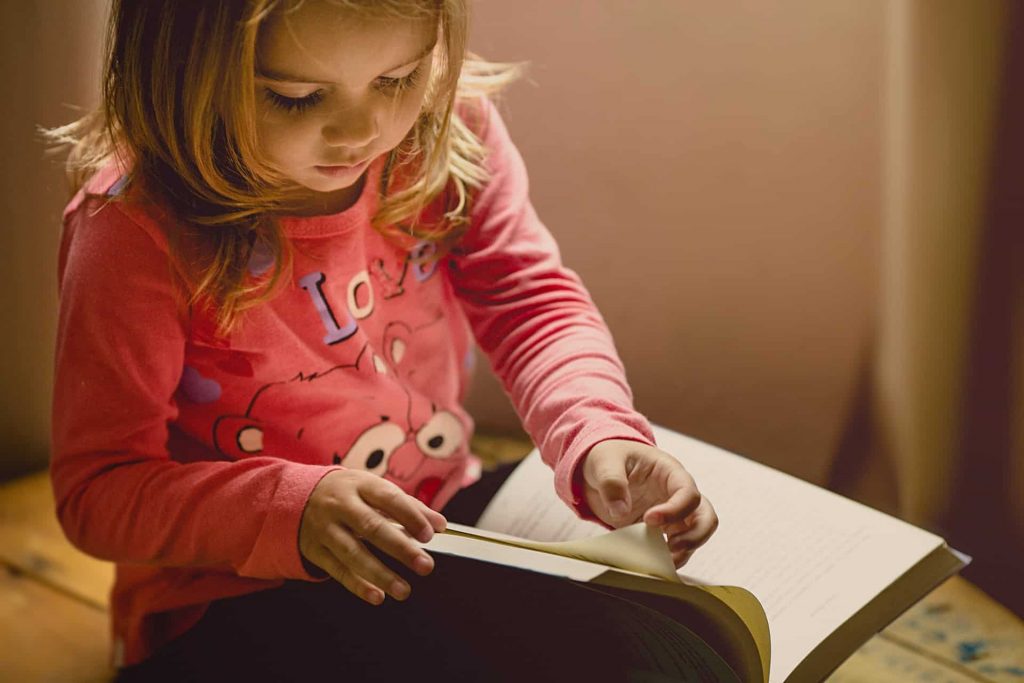How to Raise Confident Children: Proven Strategies for Success
How to Raise Confident Children: Proven Strategies for Success
Raising confident children is essential for their success and happiness in life. Building confidence starts with offering consistent support and encouragement. Parents and caregivers must be attentive to their children’s needs and accomplishments, recognizing their efforts and celebrating their successes, no matter how small.
Children who feel secure and valued are more likely to take on new challenges and learn from their mistakes. Providing opportunities for them to develop independence, such as age-appropriate responsibilities and decision-making tasks, further boosts their self-esteem. This balance of support and independence fosters resilience and self-assurance.
Confidence also stems from a child’s ability to communicate effectively. Encouraging open dialogue within the family helps children express themselves clearly and assertively. It also allows them to feel heard and understood, laying the foundation for strong interpersonal skills and self-belief.
Understanding Confidence in Children
Confidence in children involves a blend of self-esteem, self-worth, and a positive self-image. It’s important to define these terms clearly and understand their significance in a child’s development.
Defining Confidence
Confidence involves a child’s ability to trust their own abilities and judgments. It is the belief in their own potential to succeed in various tasks and situations.
Confidence is built through success and the encouragement children receive from adults and peers. They need consistent positive reinforcement, realistic goal-setting, and safe environments to try new things.
Children who are confident are more likely to take risks, try new activities, and persist in the face of challenges. This set of behaviors is critical for their overall growth and development.
The Importance of Self-Esteem and Self-Worth
Self-esteem refers to how children perceive their worth and value. High self-esteem means they feel good about themselves and believe they are deserving of love and respect.
Self-worth is closely related but more intrinsic. It is about the inherent sense of being valuable, regardless of successes or failures.
These aspects influence how children behave in social settings, their willingness to face challenges, and their ability to bounce back from setbacks. When children have a strong sense of self-worth, they are less likely to be swayed by negative peer pressure and more likely to pursue their own interests.

Foundations for Building Confidence
Building confidence in children involves providing love, support, encouragement, and fostering secure attachments. These elements are critical in developing a child’s positive self-talk and overall self-esteem.
Role of Love and Support From Parents
Children thrive on the love and support they receive from their parents. This love provides a secure base from which they can explore the world.
Consistent emotional support is vital in helping children feel valued and understood. Parents’ ability to listen actively and validate their child’s feelings promotes a strong sense of self-worth.
Quality time together, whether it’s playing, reading, or simply talking, strengthens the bond. Children who feel loved and supported are more likely to take risks and try new things, essential components of confidence.
Impact of Positive Reinforcement and Encouragement
Positive reinforcement and encouragement play crucial roles in building self-confidence. Acknowledging a child’s efforts, not just their achievements, fosters a growth mindset.
By emphasizing what the child does well and offering specific praise, parents can enhance the child’s belief in their abilities. This reinforcement should be genuine and specific, focusing on behaviors and efforts rather than innate qualities.
Encouragement should be balanced with constructive feedback, guiding the child in areas that need improvement while still celebrating their strengths. This balanced approach helps the child develop resilience and confidence.
Importance of a Secure Attachment
A secure attachment between parent and child forms the foundation of trust and confidence. This attachment is built through consistent and responsive caregiving, where the child’s needs are met with reliability.
Securely attached children tend to have better emotional regulation and social skills, both essential for confident interactions. They learn that they can rely on their caregivers, which translates into feeling secure in their abilities to navigate challenges.
Parents can foster secure attachments by being present, both physically and emotionally, showing empathy, and maintaining predictable routines. This feeling of safety and security allows children to explore their environments and engage in positive self-talk.

Developing Life Skills and Competence
Children build confidence and competence through mastering tasks and challenges, fostering responsibility and independence, and encouraging problem-solving and resourcefulness.
Facilitating Mastery Through Tasks and Challenges
Children gain essential skills by engaging in regular tasks and overcoming challenges. Simple household tasks like setting the table or making their bed foster a sense of accomplishment.
Consistent practice in these activities builds competence over time. Encouraging children to try new things, such as learning a musical instrument or participating in team sports, helps them tackle challenges head-on.
Setting realistic goals and providing positive feedback reinforces their ability to master new skills. Parents and caregivers can support this by modeling perseverance and celebrating even small victories.
Fostering Responsibility and Independence
Assigning age-appropriate responsibilities empowers children and promotes independence. Tasks like feeding a pet, organizing their school bag, or helping with groceries teach them to take ownership.
These responsibilities instill a sense of duty and accountability. Allowing children to manage their schedules or make decisions about their hobbies and activities further enhances their independence.
Encouraging self-reliance while offering guidance when needed helps balance support and autonomy. This approach nurtures their ability to make choices and manage their time effectively.
Encouraging Problem-Solving and Resourcefulness
Developing problem-solving skills is crucial for confidence. Engaging children in puzzles, strategic games, or DIY projects can hone their ability to think critically.
When faced with challenges, encouraging them to brainstorm solutions fosters resourcefulness. Discussing different scenarios and possible outcomes helps them evaluate options and make informed decisions.
Praising their efforts in solving problems, rather than just the results, builds confidence in their abilities. Providing opportunities for them to find answers or solutions independently reinforces their competence and resourcefulness.

Cultivating Resilience and Perseverance
Children thrive when they are equipped to face mistakes, value their efforts, and embrace a growth mindset. These elements are crucial for building resilience and perseverance.
Handling Mistakes and Setbacks
Children should learn that mistakes are part of the learning process. Adult responses to mistakes set the tone. Encouraging a positive view of errors helps children see them as opportunities for growth rather than failures.
A practical tip is to discuss what went wrong and strategize improvements together. This deconstructs the mistake and reduces its intimidation factor. Using phrases like, “What can we learn from this?” fosters a constructive approach.
Teaching the Value of Effort and Progress
Highlighting the importance of effort over inherent talent instills a strong work ethic. It’s beneficial to praise endeavors, regardless of the outcome. This reinforces that progress comes from persistent effort.
Creating charts of progress can visually display how persistence leads to improvement. Showing before-and-after comparisons is effective. Statements like, “You’ve worked so hard and look at the improvement!” can be very motivating.
Developing a Growth Mindset
A growth mindset helps children understand that abilities can develop through dedication. Exposing them to stories of individuals who overcame challenges through effort can be inspiring.
Encouraging phrases such as, “You can’t do it yet,” promote an openness to learning. Activities that push comfort zones, like tackling new skills or problem-solving, enhance this mindset.
Resilience and perseverance are fostered in an environment where challenges are welcomed as steps toward improvement.
Children thrive when they are equipped to face mistakes, value their efforts, and embrace a growth mindset. These elements are crucial for building resilience and perseverance.
Encouraging Healthy Risk-Taking
Helping children to take healthy risks fosters resilience, confidence, and skill development. It involves supporting them to try new things while balancing guidance with opportunities for autonomy.
Supporting Kids to Try New Things
Children benefit greatly from exposure to new activities and challenges. Encouraging them to step outside their comfort zone helps them develop new skills and discover hidden talents. Parents can set an example by demonstrating their willingness to take on new challenges.
It’s important to create a safe environment for these experiences. This includes providing emotional support and ensuring that the activities are age-appropriate. Celebrate their efforts, regardless of the outcome, to reinforce the value of trying.
Small, manageable risks are ideal starting points. Activities like joining a new club, trying a different sport, or learning a musical instrument allow them to build confidence progressively. The goal is to nurture a mindset that sees risks as opportunities for growth.
Balancing Guidance with Opportunities for Autonomy
Parents should strike a balance between providing guidance and allowing children autonomy. Too much control can stifle a child’s ability to make decisions and learn from mistakes.
Guidance should come in the form of setting clear boundaries and expectations. Let them know what the non-negotiables are, like safety rules. Outside of these boundaries, give them the freedom to experiment and take ownership of their decisions.
Scaffold their experiences by gradually increasing the level of independence as they demonstrate competence. Encourage them to reflect on their experiences, discussing what went well and what can be improved. This reflection helps them develop better judgment and problem-solving skills.
Consistent support and measured autonomy empower children to make informed choices and become more confident in their abilities.

Understanding External Influences
Children’s confidence can be significantly shaped by their interactions with peers, social media, teachers, and coaches. Specific influences and their impacts are discussed below.
The Impact of Peers and Social Media
Peers and social media play a crucial role in a child’s development. Peer pressure can encourage both positive and negative behaviors. Positive interactions with friends can boost self-esteem, while negative experiences may lead to self-doubt and anxiety.
Social media platforms can also influence a child’s confidence. Exposure to unrealistic portrayals of life can cause feelings of inadequacy. On the other hand, supportive online communities can provide encouragement and validation. Parents should monitor their child’s social media usage and discuss the differences between online appearances and reality.
The Role of Teachers and Coaches as Role Models
Teachers and coaches often serve as essential role models for children. A teacher who provides encouragement and constructive feedback can foster a supportive classroom environment. This support helps students feel more confident in their abilities.
Coaches play a similar role in sports and activities. Positive coaching can build resilience and self-belief. They should focus on effort and improvement rather than just winning. Consistent, positive reinforcement from teachers and coaches is key to nurturing a child’s self-confidence.
Parents should engage with teachers and coaches to understand their methods and support their child’s development.
Communication and Emotional Support
Fostering open communication and validating children’s thoughts and feelings are key for raising confident children. A safe and caring environment also bolsters their mental health and fosters trust.
Fostering Open Communication
Encouraging open communication helps children feel heard and understood. Ask open-ended questions, listen actively, and show genuine interest in their responses. Avoid interrupting or correcting them immediately; let them finish their thoughts first.
Model good communication. Use clear, respectful language and practice active listening. This demonstrates how to engage in meaningful conversations.
Establish regular routines, like family dinners or evening chats, to create opportunities for dialogue. This regularity helps children feel their voice is valued and enhances their sense of security.
Validating Children’s Thoughts and Feelings
Validating children’s thoughts and feelings can significantly impact their emotional development. Acknowledge their emotions without judgment. Phrases like, “I see you’re upset,” or “It sounds like you’re really happy about that,” show empathy and understanding.
Encourage expression of all feelings, whether positive or negative. Let them know it’s okay to feel sad, angry, or scared. Validation helps children process their emotions and builds their emotional intelligence.
Provide a supportive response to their emotional needs. This reinforces their value and builds self-confidence.
Building a Safe and Caring Environment
A safe and caring environment is essential for children’s confidence. Create a space where they feel physically and emotionally secure. Ensure consistent routines and clear boundaries to provide structure.
Show affection and give positive reinforcement frequently. Praise their efforts and accomplishments to build their self-esteem.
Address conflicts calmly and constructively. This teaches children healthy ways to manage disputes and trust their environment.
By maintaining a nurturing atmosphere, children are more likely to develop a strong sense of trust and confidence.

Setting the Right Goals and Expectations
Establishing clear goals and managing expectations are crucial in helping children build confidence and resilience. Caregivers need to provide guidance and support to navigate fears and anxieties that may arise.
Helping Children Set and Achieve Personal Goals
Encouraging children to set personal goals fosters a sense of achievement and independence. Begin with simple, attainable goals that match a child’s age and development level. Use clear, specific language to describe the goals, making them easier to understand and pursue.
Celebrate achievements, no matter how small they may seem. Positive reinforcement helps build confidence and encourages continued effort. Regular check-ins to assess progress and adjust goals as needed are vital for sustained motivation. Incorporate visual aids like charts or journals to track achievements and areas for improvement.
Parents and educators should model goal-setting behavior. By sharing their own experiences and demonstrating persistence, they provide a valuable blueprint for children to follow. This approach helps children see goal setting as a normal, manageable part of daily life.
Understanding and Navigating Fear of Failure and Anxiety
Children may experience anxiety and fear of failure when striving to achieve their goals. Acknowledging these feelings openly helps children understand that such emotions are normal and manageable.
Teach children coping strategies such as breathing exercises or positive self-talk to reduce anxiety. Encourage a growth mindset, emphasizing that mistakes are opportunities for learning rather than defeating setbacks. This shift in perspective can lessen the fear of failure and promote resilience.
Provide a supportive environment where children feel safe discussing their worries. Listening without judgment and offering constructive feedback can help them navigate their anxieties. Assure children that effort and progress are more important than perfection, reinforcing that it is okay to not succeed immediately.
Maintaining a Healthy Balance
Creating a nurturing environment for children involves combining structure with attention to their physical and emotional well-being. Consistent routines and physical health measures are key to fostering confidence.
Establishing Rituals and Routines to Build Structure
Establishing consistent rituals and routines is essential in giving children a sense of security and predictability. Simple activities, such as morning routines, set bedtime rituals, and regular mealtimes, provide a framework that children can rely on.
Setting clear expectations helps children understand what is required of them, leading to improved discipline and a sense of accomplishment. A structured environment not only makes children feel safe but also encourages responsibility by assigning age-appropriate tasks, which boosts their self-esteem.
Incorporating time for schoolwork, hobbies, and play ensures a balanced daily schedule. This mixture prevents burnout and allows children to explore their interests, further enhancing their confidence.
Promoting Physical Well-being as a Confidence Booster
Physical well-being plays a significant role in building a child’s self-confidence. Regular physical activity, such as participating in sports or simply playing outside, improves overall fitness and generates positive feelings. Exercise releases endorphins, which can improve mood and reduce anxiety.
Healthy eating habits are equally important. A balanced diet rich in fruits, vegetables, and whole grains contributes to better physical health and cognitive function. Children who feel good physically are more likely to engage in social activities and take on new challenges.
Additionally, physical affection and positive reinforcement from parents are crucial. Simple acts like hugs or words of encouragement reinforce a child’s sense of worth, making them feel valued and confident in their abilities.


